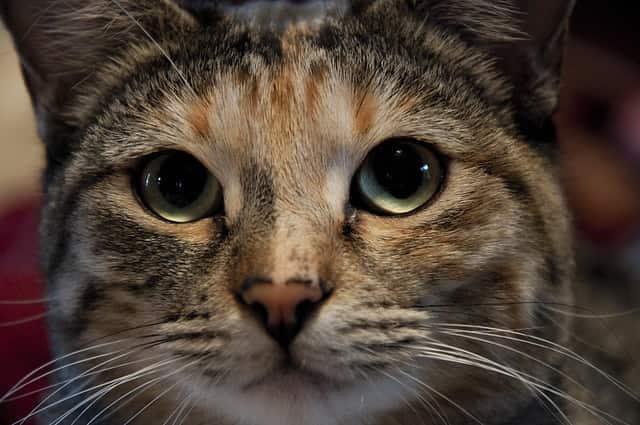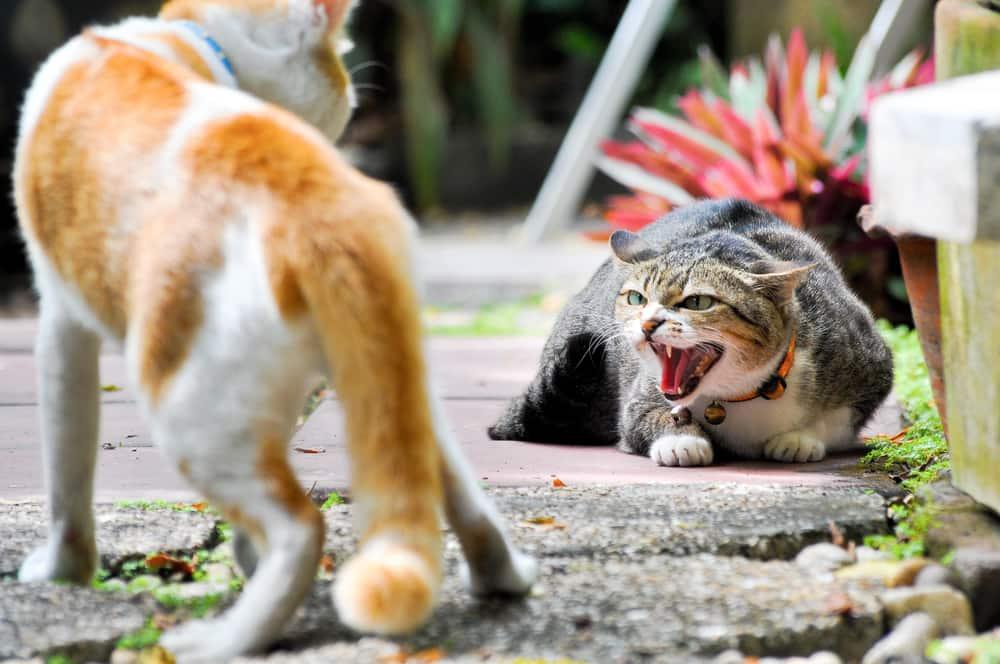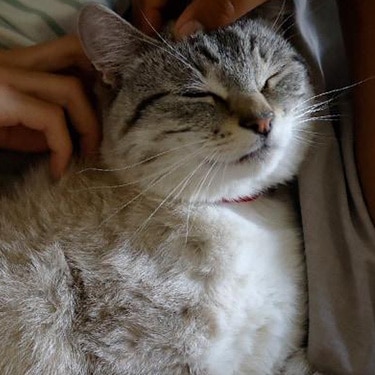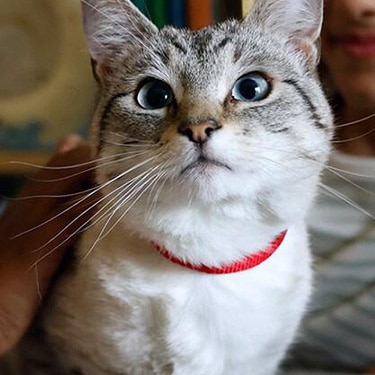
-
Find the right food for your petTake this quiz to see which food may be the best for your furry friend.Find the right food for your petTake this quiz to see which food may be the best for your furry friend.Featured products
 Perfect Digestion Large Breed Puppy Food
Perfect Digestion Large Breed Puppy FoodPrecisely balanced nutrition with Hill's ActivBiome+ prebiotic blend actively contributes to supporting digestive health and overall well-being to help your pet feel their best
Shop Now Small & Mini Mature Adult 7+ Dog Food
Small & Mini Mature Adult 7+ Dog FoodHill's Science Plan Small & Mini Breed Mature Adult Dog Food with Chicken is a complete pet food, specially formulated with ActivBiome+ Multi-Benefit Technology.
Tailored nutrition to support graceful ageing in small dogs. Specially made with a synergistic blend of nutrients for energy & vigor.Shop Now Perfect Digestion Small & Mini Adult Dog Food
Perfect Digestion Small & Mini Adult Dog FoodHill's Science Plan Perfect Digestion Small & Mini Breed Adult Dog Food with Chicken & Brown Rice supports ultimate digestive well-being & a healthy microbiome.
Shop NowFeatured products Kitten Food
Kitten FoodHill's Science Plan Kitten Wet Cat Food Premium Chunks in Sauce with Chicken is a complete pet food for kittens and for pregnant or nursing cats
Shop Now Hairball & Perfect Coat Adult Cat Food
Hairball & Perfect Coat Adult Cat FoodHill's Science Plan HAIRBALL & PERFECT COAT Adult cat food with Chicken is specially formulated to effectively help avoid hairball formation in adult cats while promoting a beautiful coat. Thanks to its mix of essential Omega-6 fatty acids, this food benefits the cat's skin and fur keeping them healthy and shiny. Our Advanced Fibre Technology helps reduce hairballs by naturally promoting their passage through the gut. This food is formulated with high-quality protein for a perfectly balanced, great-tasting recipe.
Shop Now Hypoallergenic Dry Cat Food
Hypoallergenic Dry Cat FoodHILL'S SCIENCE PLAN Hypoallergenic Adult cat food with egg & insect protein is a complete pet food for adult cat 1–6 years old. It's formulated for cats with delicate skin and stomach, with limited high quality novel protein sources & no grain.
Shop Now -
Dog
- Dog Tips & Articles
-
Health Category
- Weight
- Food & Environmental Sensitivities
- Urinary
- Digestive
- Joint
- Kidney
-
Life Stage
- Puppy Nutrition
- Adult Nutrition
- Senior Nutrition
Cat- Cat Tips & Articles
-
Health Category
- Weight
- Skin & Food Sensitivities
- Urinary
- Digestive
- Kidney
-
Life Stage
- Kitten Nutrition
- Adult Nutrition
Featured articles The Right Diet For Your Pet
The Right Diet For Your PetLearn what to look for in healthy pet food & nutrition, including ingredients, quality of the manufacturer, your pet's age, and any special needs they have
Read More Pet Food Storage Tips
Pet Food Storage TipsWhere you store your cat and dog food can make a big difference in the quality and freshness once it is opened. Here are some common questions and recommendations for optimal storage for all of Hill’s dry and canned cat and dog food.
Read More Understanding Your Pet's Microbiome
Understanding Your Pet's MicrobiomeLearn what a pet's microbiome is, how it contributes to your pet's gut & overall health, and why nutrition is important in maintaining healthy microbiomes.
Read More -


Sharing your home with spirited cats makes life interesting. But if your kitty has a tendency to become aggressive, especially unprovoked aggression, you may not know what to do. Aggressive cats are not uncommon, but they can sometimes be hard to read. Learning how to calm an aggressive cat will help you build a strong and loving bond with your feline friend.
Identifying Aggressive Behaviour
Understanding a cat's body language during "normal" circumstances can help you identify when they're acting out of character. "It enables pet parents to more accurately 'read' their cats and understand their feelings and motivations for doing what they do. It also helps them respond more effectively to behavior issues like aggression," explains the ASPCA (American Society for the Prevention of Cruelty to Animals). Cats use their eyes, ears, tail and voice to communicate with their people, and as you get to know your cat, you'll recognize their behaviour patterns for wanting food, playtime and affection.
 Some cats are naturally rowdy, doing crazy things such as running up and down the hallway (always in the middle of the night), throwing their toy mouse in the air and playfully yowling. This is not aggressive behaviour, though; it's quite clear when a cat is being more than just rambunctious and instead is being downright aggressive.
Some cats are naturally rowdy, doing crazy things such as running up and down the hallway (always in the middle of the night), throwing their toy mouse in the air and playfully yowling. This is not aggressive behaviour, though; it's quite clear when a cat is being more than just rambunctious and instead is being downright aggressive.
There's no mistaking these signs of aggression:
- Hissing
- Biting
- Swatting
- Growling
- Exposed claws
- Open mouth
- Stiff stance
If your cat suddenly exhibits these or other signs of aggressive behaviour that is out of character, and for which there is no obvious cause, first take them to a veterinarian's office to rule out an underlying medical cause. Once they have a clean bill of health, you can then identify and manage other possible causes of your cat's mischief.


Tasty Tips
Causes of Aggression
Keep in mind that it's not unusual for cats to be feisty; as the Cornell Feline Health Center points out, "Aggression, defined as hostile or violent behaviour intended to dominate or intimidate another individual, is a fairly common behavioural problem in cats." A few causes of aggression include age (kittens and young cats up to age 2 are the very definition of "rowdy"), lack of socialization (this is especially true for cats that are isolated in their early life stages), and maternal instincts (mommy cats are very protective of their babies).
The most common culprits behind the behaviour of aggressive cats are three forms of redirected aggression: play, inter-cat and territorial.
Play or Aggression?
Cats love to play, but play can sometimes turn into aggression. This commonly occurs in kittens, who are just figuring out their boundaries. If they bite or swat their littermates too roughly, their siblings will straighten them out quickly. Cats that are about to take playtime to the next level shake their rears and flatten their ears, and their pupils may dilate.
Inter-Cat Hostility
Inter-cat aggression is the second most common type of aggression (the first being play aggression), according to Tufts's Cummings Veterinary Medical Center: "Cats may not cohabitate well for a variety of reasons, including incompatible temperaments, territorial competitions or as a consequence of overcrowding." For example, when cats that once got along suddenly have conflict, it could be because one of them smells differently after visiting the vet.
Territorial and Fear
Many cats enter attack mode when they are intimidated or provoked by people or other pets, which is why your cat may be perfectly lovely with you but then suddenly growl and swat at a visitor, or whack the family dog if they try to snuggle on the couch with them. If a cat thinks someone or something is going to invade their turf, they'll lash out.
But thankfully, there are ways to curb your cat's aggressive behaviour.
How to Calm an Aggressive Cat
After identifying the reason for your cat's aggression, you can better manage their behaviour. Some reasons are temporary and somewhat easier to manage, like maternal aggression, because you know exactly what to do: Stay away from mommy cat and let her do her thing. For other instigators, you may have to be a bit more creative.
As noted above, play aggression is a very common form of feline aggressive behaviour. One way to de-escalate this — and even prevent it in the first place — is not to roughhouse with your cat. This form of play, in which your cat attacks your body with their jaw and/or claws, promotes combative behaviour.
If they gravitate toward rough activities, redirect their attention to a replacement toy such as a stuffed animal. Stuffed animals made for dogs are great for aggressive cats because they consist of sturdier material than most cat toys and won't disintegrate after the first attack.
Once a cat establishes their domain, they'll make sure other animals (and people) know they are the boss. If you are introducing new cats to each other, or if one cat begins to aggressively dominate another after they've been cohabiting for a long time, you may have to separate their eating, living and litter box areas and reintroduce them slowly.
 Very aggressive cats can be a danger to others, so you never want to intervene while your cat is on the defense, or you'll end up creating more chaos. If two or more cats are tussling, make a brief loud noise or create another distraction that will separate them. If your cat is fearful and alone, you'll be tempted to pet or console them, but they may perceive this gesture as a threat. Therefore, don't attempt to approach or touch them until they're ready. Don't worry — they'll let you know when.
Very aggressive cats can be a danger to others, so you never want to intervene while your cat is on the defense, or you'll end up creating more chaos. If two or more cats are tussling, make a brief loud noise or create another distraction that will separate them. If your cat is fearful and alone, you'll be tempted to pet or console them, but they may perceive this gesture as a threat. Therefore, don't attempt to approach or touch them until they're ready. Don't worry — they'll let you know when.
As the joke goes, cats train their pet parents and not the other way around. As you navigate your cat's aggressive behaviour, don't try to punish them, "as this may cause a cat to become fearful of people or may be interpreted as play, which may inadvertently reward the aggressive behaviour," explains Cornell. "Walking away and ignoring a cat engaged in play aggression may teach him that inappropriately aggressive play results in no play at all." Bottom line: Reward the good behaviour and not the bad.
When to Seek Veterinary Care
Unusual aggression in cats that cannot be attributed to a specific cause requires a trip to the vet to diagnose a possible larger problem, including an underlying medical condition. Neutering and spaying your cat will reduce feline aggression, as will treating them for a health issue. Illnesses that can cause cat aggression include epilepsy, trauma, dental disease, diabetes, hyperthyroidism (accelerates metabolism), hypertension (high blood pressure), primary brain disorder, FeLV (feline leukemia), FIV (feline immunodeficiency) and FIP (feline infectious peritonitis, a viral disease). Treatment for these conditions can decrease or eliminate your kitty's aggression. Early intervention is the best thing you can do to keep your furry friend in top health.
With these tips, advice from your vet and a lot of patience, you may be able to calm your fur babies and enjoy a long, happy life together.


Christine O'Brien is a writer, mom, and long-time cat parent whose two Russian Blues rule the house. Her work also appears in Care.com, What to Expect, and Fit Pregnancy, where she writes about pets, pregnancy, and family life. Find and follow her on Instagram and Twitter @brovelliobrien.
Related products

Hill's Science Plan HAIRBALL & PERFECT COAT Adult cat food with Chicken is specially formulated to effectively help avoid hairball formation in adult cats while promoting a beautiful coat. Thanks to its mix of essential Omega-6 fatty acids, this food benefits the cat's skin and fur keeping them healthy and shiny. Our Advanced Fibre Technology helps reduce hairballs by naturally promoting their passage through the gut. This food is formulated with high-quality protein for a perfectly balanced, great-tasting recipe.

HILL'S SCIENCE PLAN Hypoallergenic Adult cat food with egg & insect protein is a complete pet food for adult cat 1–6 years old. It's formulated for cats with delicate skin and stomach, with limited high quality novel protein sources & no grain.

Hill's Science Plan Kitten Wet Cat Food Premium Chunks in Sauce with Chicken is a complete pet food for kittens and for pregnant or nursing cats

Hill's Science Plan Adult Cat Food with Chicken is a complete pet food, specially formulated with ActivBiome+ Multi-Benefit Technology.
This food is specially formulated to fuel the energy needs of cats during the prime of their life.
Related articles

Find out about how you can support your cat's digestion to boost overall health. Diet is key to a long and happy life for your cat, so discover what you can do.

When learning how to train your cat, you'll start with very basic first steps that both reward good behavior and discourage the bad.

Discover which cat toys games your feline friend might like, and how they are great sources of exercise. Explore our library of articles to learn more.

Discover what you can do to spot and support a sensitive cat stomach. See what routines and food you can implement to help your cat be happy and healthy.

Put your cat on a diet without them knowing
Our low calorie formula helps you control your cat's weight. It's packed with high-quality protein for building lean muscles, and made with purposeful ingredients for a flavorful, nutritious meal. Clinically proven antioxidants, Vitamin C+E, help promote a healthy immune system.
Put your cat on a diet without them knowing
Our low calorie formula helps you control your cat's weight. It's packed with high-quality protein for building lean muscles, and made with purposeful ingredients for a flavorful, nutritious meal. Clinically proven antioxidants, Vitamin C+E, help promote a healthy immune system.

